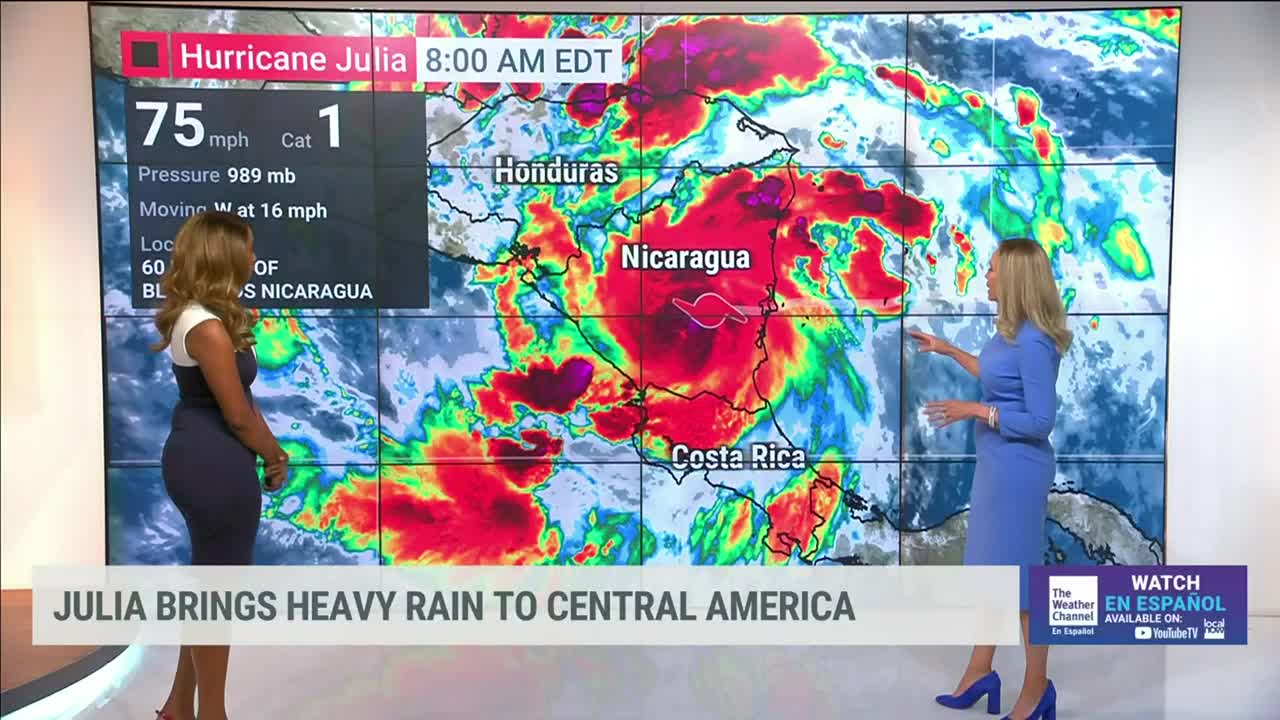Is Western Separation Feasible? A Saskatchewan Perspective

Table of Contents
Economic Feasibility of Western Separation
Resource Dependence and Economic Diversification
Saskatchewan's economy is significantly reliant on resource extraction, particularly potash and agriculture. This dependence raises crucial questions about the economic feasibility of Western separation. The province's prosperity is intrinsically linked to both domestic and international markets. Separation would drastically alter this landscape.
- Impact on NAFTA/CUSMA: Severing ties with Canada would necessitate renegotiating trade agreements like CUSMA (formerly NAFTA), a process fraught with uncertainty and potential economic disruption. The complexities of establishing new trade deals with the US and other major trading partners could severely impact Saskatchewan's key industries.
- Potential for New Trade Deals: While a separate Saskatchewan could theoretically forge new trade alliances, the process would be lengthy, costly, and uncertain, potentially leaving the province vulnerable in the interim. Securing favorable terms might prove difficult, especially given Saskatchewan's relatively small economy in the global context.
- Challenges of Establishing Independent Monetary Policy: An independent Saskatchewan would need to establish its own monetary policy and currency, a complex undertaking with significant risks. This could lead to currency volatility and increased transaction costs, harming both domestic and international trade.
- Credit Rating Implications: A newly independent Saskatchewan would likely face a lower credit rating than it currently enjoys as part of Canada. This would increase borrowing costs and potentially limit access to crucial investment capital.
The economic consequences of separation would be far-reaching, affecting not only major industries like potash and agriculture, but also smaller businesses and individuals. A thorough analysis of Saskatchewan's economic dependence on the rest of Canada and global markets is critical before considering such a drastic step.
Financial Resources and Debt Burden
Saskatchewan's current financial position must be carefully considered in the context of Western separation. The province would inherit a portion of the national debt and would need to establish new revenue streams to fund essential services.
- Existing Provincial Debt: Saskatchewan already carries a substantial provincial debt. Separation would likely necessitate further borrowing to finance the creation of new governmental structures and institutions.
- Potential for New Borrowing: Establishing a new nation requires significant investment in infrastructure, public services, and national defense. This would necessitate considerable borrowing, potentially placing an immense burden on future generations.
- Taxation Implications: A new government would have to design and implement a new tax system, potentially leading to significant changes in tax rates and burdens for businesses and individuals.
- The Cost of Establishing New Government Institutions: Creating a completely new government, including the various ministries, agencies, and regulatory bodies, would involve substantial upfront costs, diverting resources from other crucial areas.
A comprehensive assessment of Saskatchewan's financial capacity to function independently is crucial before contemplating Western separation. A clear plan for managing debt, securing funding, and establishing a sustainable fiscal policy is essential.
Political Viability of Western Separation
Public Opinion and Support for Separation
While there is a significant degree of Western alienation, the level of support for Western separation in Saskatchewan and other Western provinces is not monolithic and varies considerably.
- Recent Polling Data: Recent polls show fluctuating levels of support for separation, indicating a lack of widespread consensus. Support for separation is often correlated with specific grievances and dissatisfaction with the federal government’s policies.
- Regional Variations in Support: Support for Western separation varies across different regions within Saskatchewan and other Western provinces, reflecting diverse economic interests and political viewpoints.
- Factors Influencing Public Opinion: Factors such as equalization payments, resource management policies, and perceived unfair treatment by the federal government heavily influence public opinion on separation.
A thorough examination of public opinion polls and surveys is crucial to understand the actual level of support for Western separation and its regional variations.
Constitutional and Legal Challenges
The legal and constitutional hurdles to Western separation are substantial and complex.
- Constitutional Amendment Process: Amending the Canadian Constitution to allow for the peaceful secession of a province is a highly intricate and politically charged process.
- Negotiations with the Federal Government: Negotiations with the federal government over the division of assets, liabilities, and resources would be protracted and potentially contentious.
- International Recognition: Securing international recognition of an independent Saskatchewan would be a crucial yet uncertain challenge.
- Defining Borders and Resource Ownership: The delineation of borders and the allocation of resources (including natural resources) between a separated Saskatchewan and the rest of Canada would be complex and likely involve legal disputes.
Navigating these complex legal and constitutional challenges would require considerable time, effort, and political will. The potential for lengthy legal battles and international disagreements cannot be ignored.
Social and Cultural Implications of Western Separation
Social Cohesion and Identity
Western separation could significantly impact social cohesion and national identity within Saskatchewan and the broader West.
- Potential for Increased Regionalism: Separation could exacerbate existing regional divisions and potentially lead to increased regionalism within Saskatchewan itself.
- The Impact on Indigenous Populations: The implications for Indigenous populations, whose territories often transcend provincial boundaries, would need careful consideration.
- The Role of Immigration in Shaping Identity: Immigration plays a significant role in shaping the identity of Saskatchewan and Western Canada. Separation could impact immigration patterns and the social fabric of the province.
A careful evaluation of the social impacts, including potential divisions along cultural and economic lines, is crucial.
Cross-border Relations and Migration
Separation would inevitably alter cross-border relations with the rest of Canada.
- Movement of People and Goods Across the Border: New border controls and regulations would affect the movement of people and goods, potentially disrupting established trade routes and family ties.
- Implications for Family Ties: Many families have connections across provincial borders. Separation could strain these relationships and create practical challenges.
- Impact on Interprovincial Trade: Interprovincial trade would be significantly impacted, requiring the establishment of new trade agreements and potentially leading to increased costs for businesses and consumers.
Careful consideration of these potential disruptions and their impact on daily life is vital.
Conclusion
While Western alienation is a significant concern in Saskatchewan and across Western Canada, the feasibility of Western separation presents significant economic, political, and social challenges. The economic dependence on resource extraction, the complexities of establishing a new nation, the potential for social fragmentation, and the considerable legal hurdles all point to the substantial obstacles to achieving Western separation. While the sentiment behind calls for separation must be acknowledged and addressed, a more realistic approach may involve exploring alternative solutions within the existing Canadian federation to address the core issues driving the desire for Western separation. Further research, open discussion, and exploring alternative solutions are crucial to understanding the complex issue of Western separation and its potential impact on Saskatchewan. Let's continue the conversation about Western alienation and find equitable and balanced solutions for the future of Western Canada. The alternative to thoughtfully addressing Western alienation is a continued focus on the impracticality of Western separation.

Featured Posts
-
 Liverpools Victory Honest Assessment From Arne Slot And Luis Enrique
May 21, 2025
Liverpools Victory Honest Assessment From Arne Slot And Luis Enrique
May 21, 2025 -
 Ea Fc 24 Fut Birthday Ultimate Player Tier List And Best Cards
May 21, 2025
Ea Fc 24 Fut Birthday Ultimate Player Tier List And Best Cards
May 21, 2025 -
 Wtt Star Contender Chennai 2025 A Heartfelt Goodbye From Sharath Kamal
May 21, 2025
Wtt Star Contender Chennai 2025 A Heartfelt Goodbye From Sharath Kamal
May 21, 2025 -
 China And Switzerland Urge Dialogue To Resolve Tariff Disputes
May 21, 2025
China And Switzerland Urge Dialogue To Resolve Tariff Disputes
May 21, 2025 -
 Nova Filmska Adaptacija Reddit Price Sa Sidnej Svini
May 21, 2025
Nova Filmska Adaptacija Reddit Price Sa Sidnej Svini
May 21, 2025
Latest Posts
-
 Southern French Alps Weather Update Storm Brings Heavy Snow
May 21, 2025
Southern French Alps Weather Update Storm Brings Heavy Snow
May 21, 2025 -
 The Love Monster And You Practical Tips For Self Care And Growth
May 21, 2025
The Love Monster And You Practical Tips For Self Care And Growth
May 21, 2025 -
 Love Monster A Comprehensive Guide
May 21, 2025
Love Monster A Comprehensive Guide
May 21, 2025 -
 Late Season Snowfall Impacts Southern French Alps
May 21, 2025
Late Season Snowfall Impacts Southern French Alps
May 21, 2025 -
 Love Monster In Relationships Identifying And Overcoming Destructive Patterns
May 21, 2025
Love Monster In Relationships Identifying And Overcoming Destructive Patterns
May 21, 2025
